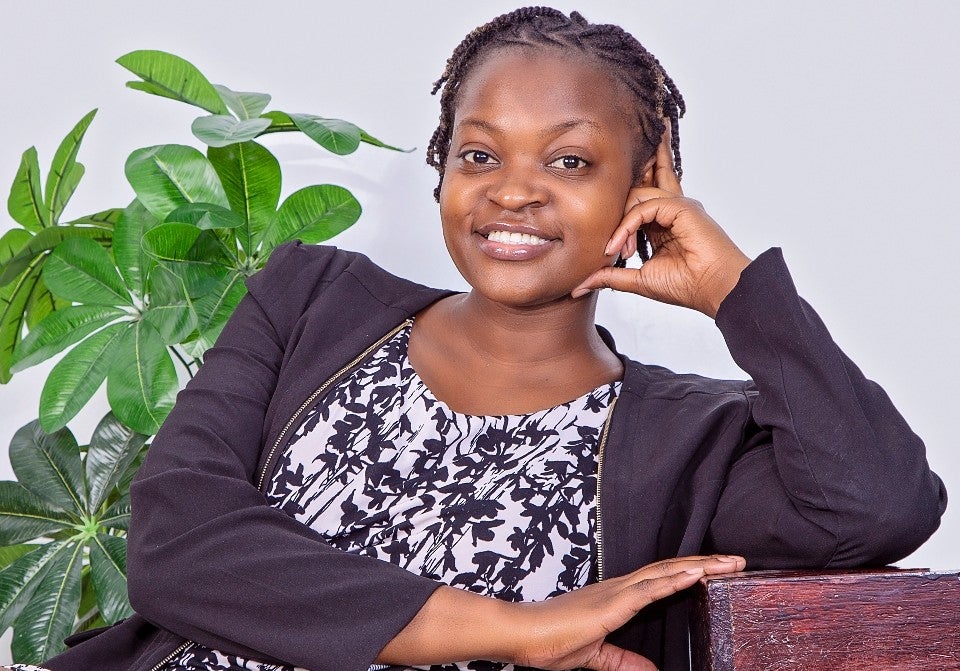I am Generation Equality: Wanjuhi Njoroge, climate activist and entrepreneur from the foot of Mount Kenya
Billions of people across the world stand on the right side of history every day. They speak up, take a stand, mobilize, and take big and small actions to advance women’s rights. This is Generation Equality.Date:


Three things you can do to increase women’s participation in climate issues:
- Educate and create awareness at the community level.
- Ensure climate action is not punitive, it does not undermine livelihoods.
- Seek women’s knowledge – traditional/indigenous knowledge remains untapped, we must be deliberately inclusive to address climate issues.
Why do you speak up for women’s rights? How did you start this work and why?
I grew up surrounded by very strong women; my grandmothers, my mother and the resilient women of my village. The rural woman in Kenya often surmounts the unimaginable to simply stand on her own two feet - I always wonder how much she could achieve with a level playing field. These women remain my greatest motivation. I am the daughter of an activist; as primary school teacher, my mother was among the organizers of the landmark teacher’s strike of 1997. I also grew up with a tree-hugger for a father, I’ve lost count of the number of trees I’ve planted!
What are the most urgent issues of our time?
There are many but I would narrow it down to two; climate change and quality leadership. Nature is revenging fast and it’s rough! Kenya’s constitution affords the rights to access to clean air and, to have the environment protected for current and future generations. It has a number of Nationally Determined Contribution (NDC) commitments to climate change but we are the only country in Africa that has a climate change act that has never been implemented.
The COVID-19 pandemic also exposed us to glaring leadership gaps globally. There’s an urgent need for the world to nurture a generation of leaders who lead with heart. You need leaders with a heart who prioritize people and planet over profits to mitigate the adverse effects of climate change.
How do climate justice and gender intersect?
Climate change and gender are intertwined because women are disproportionately affected, and more vulnerable to environmental disasters and extreme weather events. In Kenya, women are less economically empowered than men with little access to land and property rights. They are more likely to live in poverty after environmental disasters and displacements. Displacement and migration caused by crises also exposes them to an increased risk of sexual and gender-based violence and psychological torture. It is worth noting that this is not a one shoe fits all scenario. For instance, issues of vulnerability that are faced by urban women are much more linked to issues around pollution, waste and water management, whereas in rural areas, it’s more about agriculture.
How can we accelerate change?
I feel that that there is not enough action. Conversations are in cosy rooms, but we need to get out. I do a lot of work with rural communities. Education is so important; I am only here because I had an education. In some areas you’ll find the only job for a man is to marry women – and the women’s job is to have children. I heard a story of a mother of eight who tried to access family planning, she was beaten. This is why we need to have these conversations, and this is where these conversation needs to happen.
Wanjuhi Njoroge, 31, was raised in Nyeri County, Kenya, in a rural town that sits at the foot of Mount Kenya. Passionate about her community, she established a library in her village in 2017 and supporting local farmers to move to more sustainable farming practices. In 2019 she joined the Kenyan national chapter of the African Women Leader’s Network (AWLN), an action-oriented movement of African women leaders to transform sustainable peace, security and development issues on the continent.